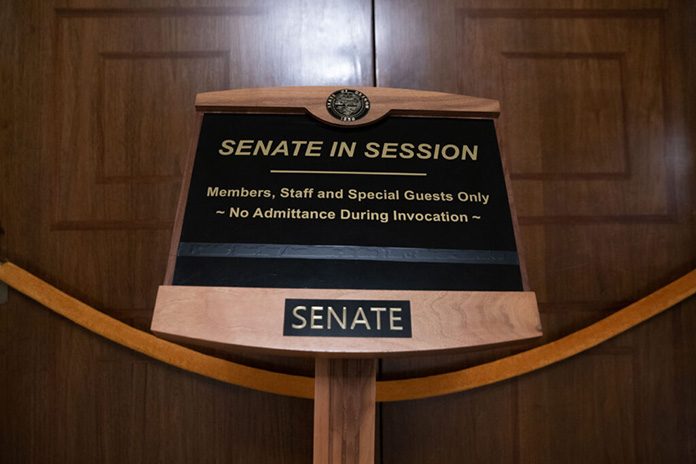
By Connor Radnovich
Republicans have their best chance in years to wrest control of the Oregon Senate away from Democrats this November, buoyed by national trends, a competitive governor’s race and key issues and concerns that favor the GOP.
State political analysts say this cycle could be as positive for Republicans as 2010, when they got out of superminority status in the Senate, tied the House 30-30 and came within 1.5 percentage points of winning the governor’s office — the narrowest margin of victory since 1956.
In 2010, the economy was still weak, only about one-quarter of Americans believed the country was going in the right direction and it was the first midterm for a Democratic president, an electorally strong position for Republicans — trends that are mirrored today.
“This is going to be a good year for Republicans, it’s just a question if it’s moderately good or historically good,” Oregon Democratic strategist Jake Weigler said.
The last time Republicans controlled the Senate was 2002, the House, 2006.
Most attention is being focused on the Senate, where Republicans have a legitimate chance to end supermajority control and potentially tie the chamber. The Senate’s current makeup is 18 Democrats, 11 Republicans and one Independent, Sen. Brian Boquist of Polk and Yamhill counties, a former Republican. Additionally, Republican Sen. Art Robinson of Cave Junction stopped caucusing with Republicans during the 2021 session, instead caucusing with Boquist.
Benefiting Republicans are the top issues being discussed across the state this election cycle: homelessness, crime and cost of living. These are all issues Republicans feel strongest talking about and that energize their base.
Democrats would prefer to focus on issues like health care, education and climate change. Not only are these issues important to left-leaning voters, but also Democratic lawmakers say they’ve made progress on them.
“No one wants to hear about what you’ve done because they’re frustrated,” Weigler said. “They think the state is going in the wrong direction.”
Part of the reason for the focus on these issues is a tight governor’s race between Democrat Tina Kotek, Republican Christine Drazan and nonaffiliated Betsy Johnson. Both Johnson and Drazan have spent millions of dollars criticizing how Kotek and Democrats have tried to address particularly crime and homelessness in the Legislature, forcing Kotek to respond with messaging of her own.
“Kotek has done as good a job as you can do to explain the records of Democrats in the state, but it’s not anything voters want to hear right now,” Oregon GOP political consultant Jim Pasero said.
With the amount of airtime and digital advertising committed to homelessness, crime and cost of living, and the fact that these issues are felt statewide, it’s natural they are permeating most races.
“These state legislative races can’t really swim against the tide,” Weigler said.
Propping up Democrats’ chances is their inherent advantage in voter registration. As of October, Democrats made up 34% of registered voters, Republicans were 25% and nonaffiliated voters were 35%.
Democrats also hold registration advantages in most of the districts up for grabs this year.
Voter registration numbers are still a major factor in determining which candidate is ultimately victorious.
According to data collected by pollster John Horvick, senior vice president at DHM Research, in 1990 around 20 seats in the Oregon Legislature were won by candidates whose party had fewer registered voters in that district than their opponent.
In 2020, that number was around four.
Horvick said this data supports other observations and studies that have shown the disappearance of ticket splitting — when a voter supports both Democrat and Republican candidates on their ballot — and true swing voters.
“If you have a party advantage heading into your election, you’re almost guaranteed to win,” he said.
For the complete story, see the Oregon Capital Chronicle.








